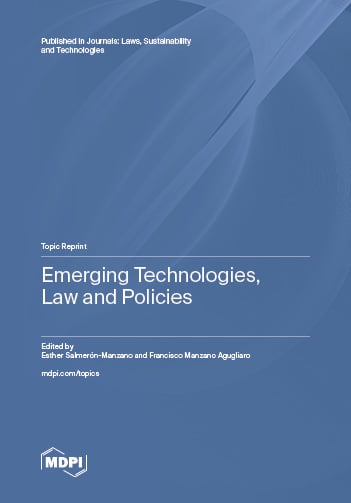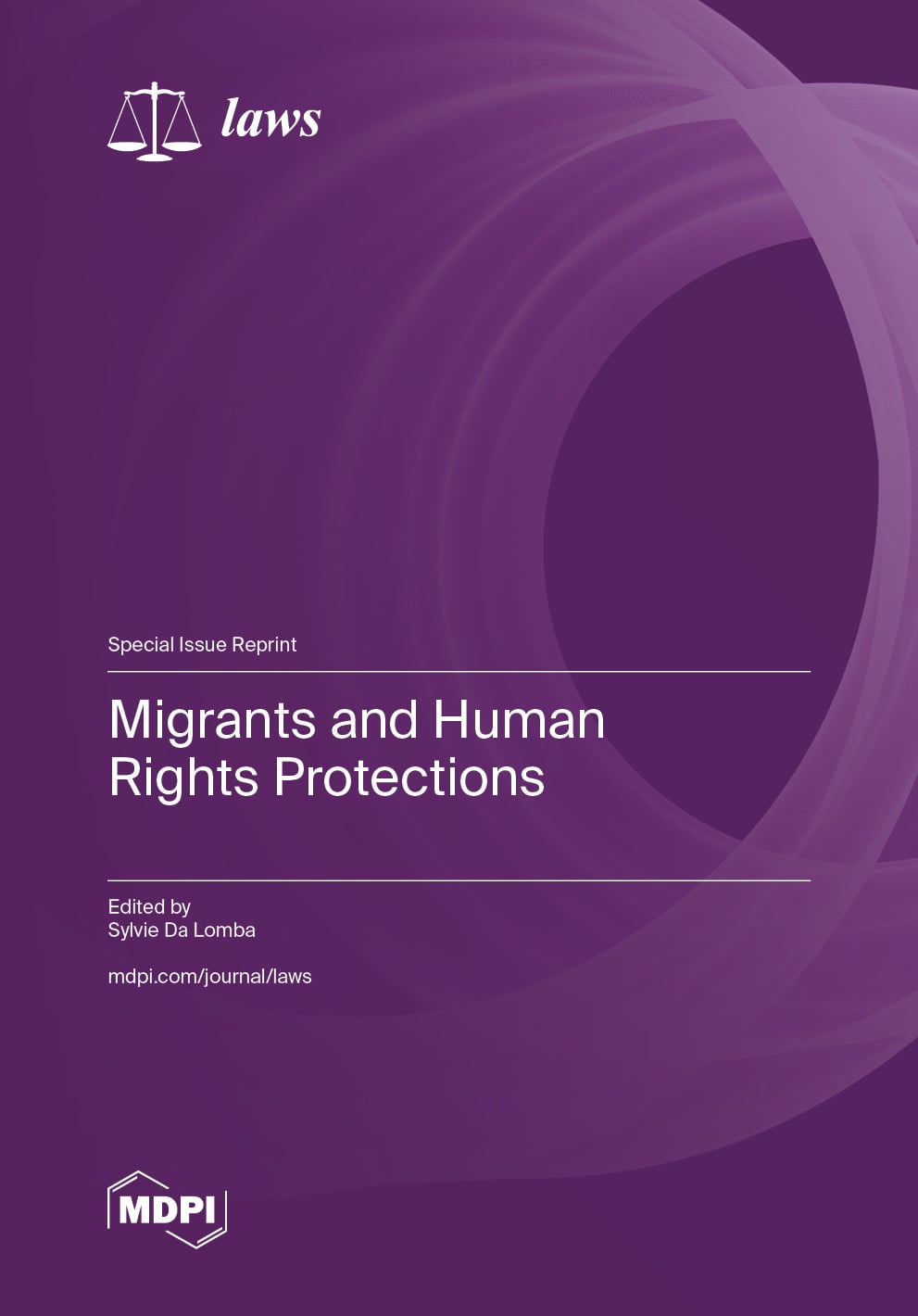- 1.1Impact Factor
- 3.0CiteScore
- 41 daysTime to First Decision
Laws
Laws is an international, peer-reviewed, open access journal on legal systems, theory, and institutions, published bimonthly online by MDPI.
Quartile Ranking JCR - Q2 (Law)
All Articles
News & Conferences
Issues
Open for Submission
Editor's Choice
Reprints of Collections

Reprint
Emerging Technologies, Law and Policies
Editors: Esther Salmerón-Manzano, Francisco Manzano Agugliaro


